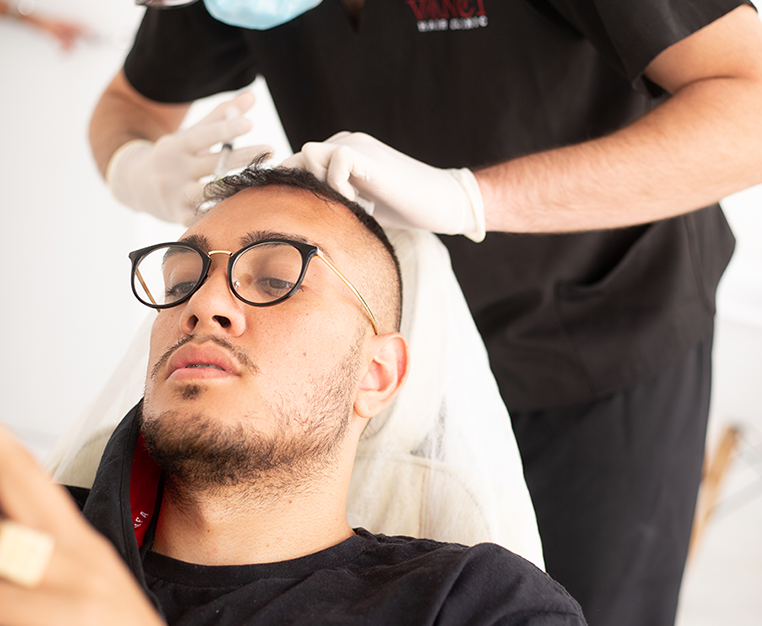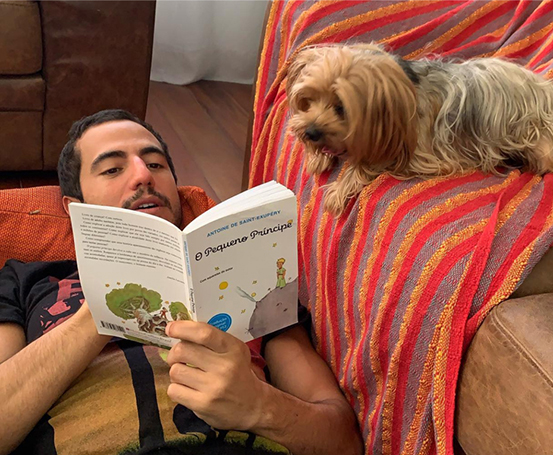Didn’t it feel great when the pandemic lockdowns were lifted and life got back to normal? You’d never have believed that simply being out and about amongst crowds could be such a pleasure! For a while, people forgot about COVID-19. Then it crept back into the news again as increasing numbers of people reported the side effects of the illness, including hair loss.
Research confirmed that post-COVID hair loss was real. One study estimated that roughly 10% of people reported hair loss after having COVID-19. A second study topped that by putting the figure at over 66%. What both these studies agreed on, however, was that more women seemed to be affected than men. It’s that disparity that this article will focus on. Keep reading!
Why Does it Happen?
People start to notice hair loss months after recovering from the virus. It can be a distressing experience, as sufferers report their hair falling out in clumps. This kind of sudden hair loss has a devastating impact on a person’s self-esteem and confidence. It can impact their capacity to do their job, and it can put a strain on their relationships.
Why does this happen? The reason, it seems, is fever. The studies show that it is those whose COVID symptoms included a high fever who tend to suffer hair loss in the following months. Nor is this simply a COVID-19 phenomenon. Hair loss is a documented feature of other illnesses that cause the patient to become feverish.
The stress and trauma of having a fever, together with its associated treatment, brings on a bout of telogen effluvium. This condition pushes your hair into the telogen phase of the hair growth cycle, a move which stops hair growth and initiates a period of hair shedding. Under normal circumstances, only about 15% of your hair is in the telogen phase. When telogen effluvium strikes, that can rise to as much as 60%. The hair shedding that results can be dramatic.
Are Women More Vulnerable?
The two studies mentioned above enrolled people who were suffering from hair loss and who’d had a previous diagnosis of COVID-19. In the first study, nearly 80% of those who came forward were women. In the second study of 128 adults, 104 were women. Obviously, these studies comprised small numbers of people, but there is other evidence that supports the theory that women are more affected by post-COVID hair loss. Online support groups for sufferers have sprung up on sites like Mumsnet UK and Facebook. These groups have tens of thousands of followers, and most are women.
Are women more vulnerable to this kind of hair loss, therefore? Perhaps not. Maybe it’s just that women are more likely to notice and report what’s happening to them. Women do still tend to have longer hair than men, and people with long hair generally notice hair fall sooner; it’s much easier to spot long strands lying in the shower tray, on the pillow or tangled in your brush.
More Attuned?
Are women more attuned to changes in their hair? The old trope about women being obsessed with their appearance – their hair in particular – while men remain indifferent to theirs has long since been laid to rest; check out the explosion in sales of male grooming products in recent years if you still have doubts. Additionally, men sign up for more hair transplants and procedures each year, possibly because baldness is more common in men.
Despite all this, there is still some evidence to suggest that women worry about hair loss more than men. The reason for that might be because male hair loss has been normalised more than female hair loss. A few decades ago, a male with a shaved head was an oddity, someone who was perceived as aggressive. These days, a shaved head is almost a fashion statement. There isn’t that same fashionable fallback option for women. Hair loss is still catastrophic for females, which possibly explains why they are more attuned to hair fall and are more likely to seek help when it happens.
Conclusion
Post-COVID hair loss feels like one last kick from a particularly vicious virus. The only good news is that this type of hair loss is temporary, and you should see some regrowth within months. In the meantime, maintain a healthy diet and lifestyle, and speak to your hairstylist about disguising the worst effects of your hair loss with a new cut. Consider signing on to one of the online support groups for post-COVID hair loss sufferers; it helps to hear from others in the same boat.
If you have concerns about hair loss, Vinci Hair Clinic can help. We are amongst the elite group of international hair restoration organisations, and we offer a free, no-obligation consultation to all our new clients. Get in touch and book your appointment today – we look forward to welcoming you!



